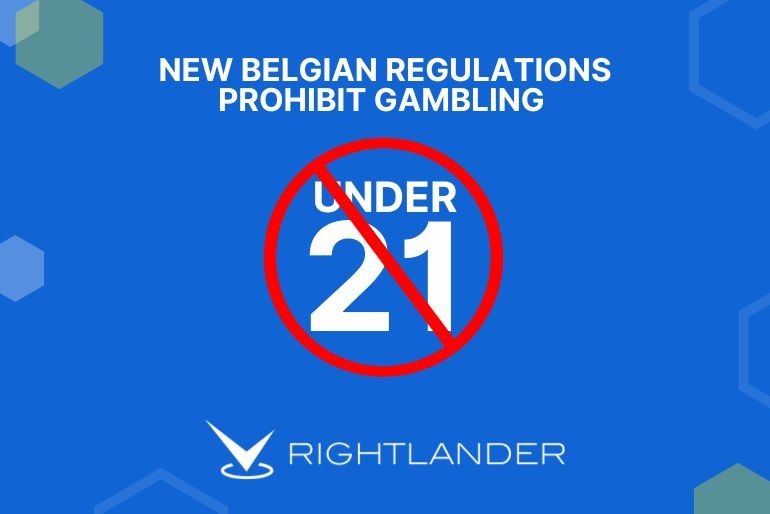On September 1, Belgium implemented new regulations raising the minimum age for participating in all forms of gambling, both online and land-based, to 21 years. The rules also included a total ban on bonus incentives, as outlined in the country's Royal Decree on Gambling.
In July 2023, the Belgian government approved a Royal Decree prohibiting gambling advertisements across all platforms, including TV, radio, outdoor billboards, magazines, newspapers, and public spaces. Additionally, online ads on websites and social media were banned.
Growing Restrictions
More restrictions are planned: starting January 1, 2025, gambling advertisements will be banned in sports stadiums, and by January 1, 2028, all forms of gambling sponsorships in sports will be prohibited.
One year after the Decree was enforced, researchers report that Belgian audiences are still largely unaware of the ban, as gambling sponsorships continue to be prominently displayed, especially in football stadiums and during broadcasts.
Rising Online Gambling
In 2023, a study undertaken by Nepa revealed a 6% increase in online players using illegal websites in the three months following the Royal Decree banning advertising and a 4% rise in deposits on illegal gaming sites.
With the number of online gamblers having doubled over the past four years, several organisations are urging Belgium's Federal Government to enhance its gambling policy to address the risks of addiction.
Authorities are also being asked to increase investments in regulatory oversight bodies. Additionally, they are calling for a ban on the most hazardous games, such as live betting, online slot machines, and roulette.
Belgium's growing black market
The stricter Responsible Gambling (RG) rules align with a growing trend of more stringent regulations across Europe, as established markets aim to address the effects of problem gambling.
However, critics of the increased regulations argue that these new restrictions may ultimately push players towards the black market.
In December, the Belgian Association of Gaming Operators (BAGO) published a survey revealing that 43% of vulnerable participants had gambled on an unlicensed site within the past three months.
The association estimated that 16% of player spending is channelled to the unlicensed market. Half of the surveyed players declared considering playing on an illegal platform, even if they were aware of the site’s illegal status.
There are strong concerns about the low collection rate for fines related to gambling law violations, with only 21% collected in 2023. They stress the importance of having a strong, independent gambling authority to ensure that such a ban is not merely symbolic.
Researchers conclude that the existing Royal Decree regulations may only prove effective with proper enforcement and the ability to monitor and penalise violations more effectively.

 by Shenaly Amin | 16 Sep 2024
by Shenaly Amin | 16 Sep 2024
 2-min read
2-min read




